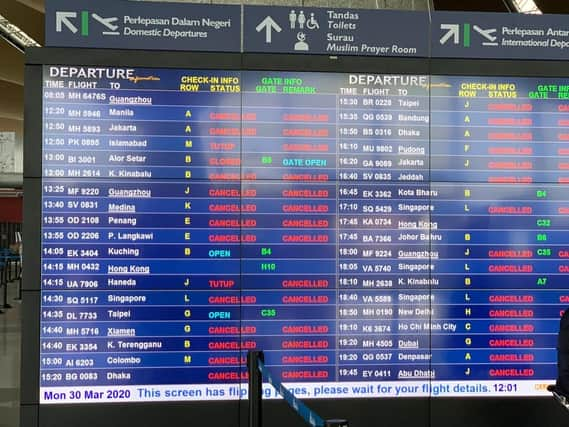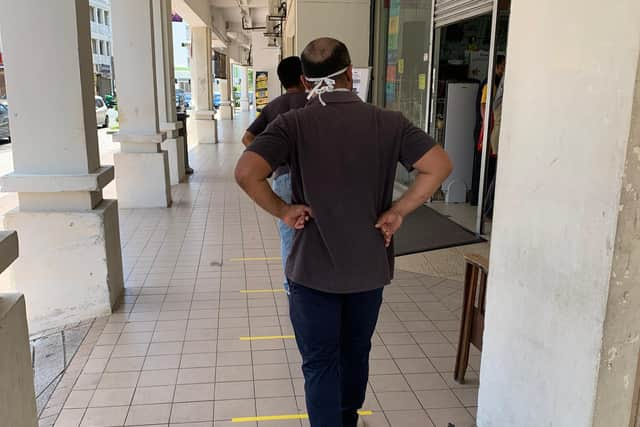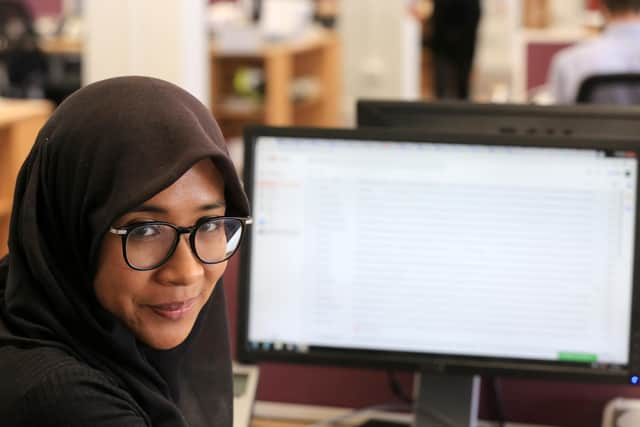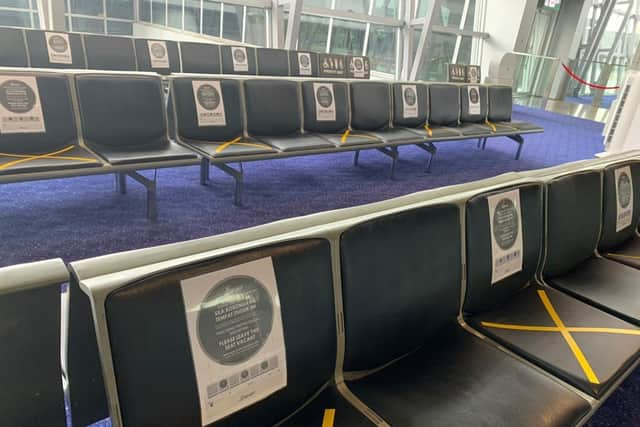"No one is allowed to leave their home even for a jog or to walk their dogs" - Sheffield journalist describes the situation in Malaysia


I thought it was just another virus like the severe acute respiratory syndrome (SARS) which had caused an epidemic in 2002 and had led to more than 8,000 infections worldwide and killed close to 10 percent of those infected.
The outbreak of this novel virus, known as Covid-19, has spread rapidly across many parts of the world and Malaysia, where I am from, is not spared.
Advertisement
Hide AdAdvertisement
Hide AdGeographically speaking, Malaysia is more at risk, as it is closer to the epicentre of the virus in China.


I wasn’t too worried about it until I had to return home as my visa to remain in the UK was running out.
I was sad to leave Sheffield, a place where I called home for the past year but I promised I would come back in a few weeks’ time with a fresh visa in my hand.
After a 16-hour journey, my husband, our daughter and I arrived safely in Kuala Lumpur on the night of February 16.
Advertisement
Hide AdAdvertisement
Hide AdAt the airport, we couldn’t help but notice the majority of the people were wearing face masks over Covid-19 fears, a stark contrast to what we experienced in Manchester Airport where we took our flight.


Over there, we were only asked by a staff member whether we had a travel history to China but that was all to it.
The first two weeks in Malaysia was more like a vacation for us - catching up with our loved ones and our friends despite Malaysia recording 22 positive cases at this point, all involving Chinese tourists.
Malaysian government acted fast to contain the outbreak. Every patient was put in isolation, treated, recovered and repatriated to their home country.
Advertisement
Hide AdAdvertisement
Hide AdIn fact, Malaysia was free of the disease for 11 days - until a mass gathering of a Muslim missionary group took place near the capital city went unnoticed by the authorities in late February.


The annual gathering was attended by 16,000 Muslim missionaries (14,000 of them were Malaysians) and this had triggered the second wave of the deadly disease in the country.
The restricted movement order (which is similar to a lockdown), was then enforced on March 18, two days before I was scheduled to return to the UK.
The RMO means all mass assembly and activities in any nature are prohibited. Its citizens are also barred from leaving the country and tourists will be denied entry.
Advertisement
Hide AdAdvertisement
Hide AdWith schools and universities are shut for at least a month, students living on campus were forced to rush to their hometowns, crowding the train and bus stations with no room for social distancing.
This decision, however, was reversed overnight following a huge backlash from the public.
Unlike the UK, no one is allowed to leave their home even for a jog or to walk their dogs. Flouting these rules means the offenders will need to pay RM1,000 (£188) fine or face a six-month jail term.
In addition to ensuring that the public stay home, roadblocks manned by the police and the army are set up throughout the country.
Advertisement
Hide AdAdvertisement
Hide AdAnd only one person from each household is allowed to leave their home within a six-mile radius to buy essential or medical items during this period.
With such strict rules in force, doing groceries now has become one thing that I dread the most.
Not only do I need to show proof of the reason behind my journey at the roadblock, everyone is required to wear a face mask in order to reduce the risk of infection.
At the supermarket, each customer is needed to queue at the entrance 1-metre apart from each other before being allowed in to avoid building a crowd.
Advertisement
Hide AdAdvertisement
Hide AdAt the entrance, the customer will have their temperature checked and get their hands sanitised.
Knowing how easily the virus spreads, this has forced me to take extra precautionary measures whenever I go out shopping.
First, I avoid holding any item that I’m not sure of buying and sanitise everything that I bought before storing them.
Second, the clothes that I wear also have to be washed separately and get myself cleaned up from head to toe before meeting my family.
Advertisement
Hide AdAdvertisement
Hide AdTedious as this may sound, I believe it is better to be safe than sorry.
Although there are uncertainties surrounding the prospects of me returning to the UK, being on lockdown has given me the opportunity to appreciate the quality time with my family, which I have missed out a lot on the past year.
It has also taught me to appreciate what I have and live within my means, as the pandemic ravages the world’s economy with millions at risk of unemployment.
And no matter how vicious the disease is, it has taught me to live a simple life and be grateful for every little thing that I have.
Advertisement
Hide AdAdvertisement
Hide AdMost importantly, it is teaching me empathy - that not everyone has a comfortable home to stay in, some have to share a tiny space, while some have no roof over their heads at all.
While we have the privilege to stock up on food, the are others who wonder where their next meal is coming from.
Therefore, let us all do our part to help the frontliners in saving lives by staying home because that is certainly the least we could do.